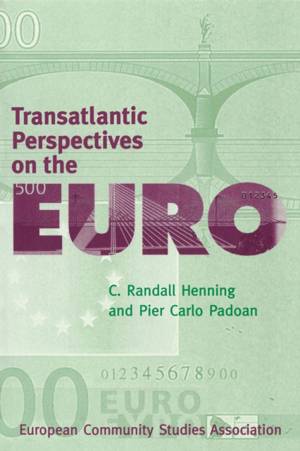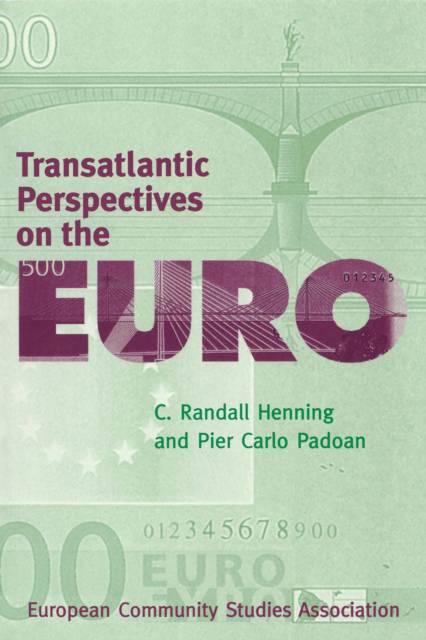
- Retrait gratuit dans votre magasin Club
- 7.000.000 titres dans notre catalogue
- Payer en toute sécurité
- Toujours un magasin près de chez vous
- Retrait gratuit dans votre magasin Club
- 7.000.0000 titres dans notre catalogue
- Payer en toute sécurité
- Toujours un magasin près de chez vous
35,45 €
+ 70 points
Description
The European economic and monetary union has changed the structure of international monetary relations fundamentally. In this book two experts--one European, the other American--offer transatlantic perspectives on the ramifications of the monetary union and the launch of the euro. C. Randall Henning examines selected American views on Europe's monetary union, and looks at the political, economic, and institutional interests of the United States as they are affected by the creation of the euro. He examines the external monetary policymaking machinery of the union and discusses the relationship of the monetary union to international institutions, particularly the meetings of the G-7 finance ministers and central bank governors and the International Monetary Fund. Henning is generally sympathetic to European integration, supportive of the monetary union, and persuaded of the importance of international cooperation. Pier Carlo Padoan presents a European view of the role of the euro in the international system. He looks at the euro as a potential global currency and examines the transition phase between a regional currency and a global currency. Central to this is an analysis of the appropriate exchange rate policy for the euro. He also considers euro-dollar relations and the prospects for transatlantic cooperation. C. Randall Henning is a professor at The American University and a senior fellow at the Institute for International Economics. Pier Carlo Padoan is a professor at the University of Rome and the College of Europe.
Spécifications
Parties prenantes
- Auteur(s) :
- Editeur:
Contenu
- Nombre de pages :
- 136
- Langue:
- Anglais
Caractéristiques
- EAN:
- 9780815735595
- Date de parution :
- 01-01-00
- Format:
- Livre broché
- Format numérique:
- Trade paperback (VS)
- Dimensions :
- 153 mm x 229 mm
- Poids :
- 195 g

Les avis
Nous publions uniquement les avis qui respectent les conditions requises. Consultez nos conditions pour les avis.






